You’ve had a long week. Your shoulders are tight, your mind is buzzing, and you just need to reset. Not a quick stretch. Not a 10-minute foam roller session. You need something deeper - something that doesn’t just ease tension but rewires your whole sense of calm. That’s where Thai massage in London comes in.
What Exactly Is Thai Massage?
Thai massage isn’t just another spa treatment. It’s a 2,500-year-old healing tradition from Thailand that blends acupressure, assisted yoga stretches, and energy line work. Unlike Swedish or deep tissue massage, you stay fully clothed - usually in loose cotton pants and a top - and lie on a mat on the floor. No oils. No table. Just your body, the therapist’s hands, elbows, knees, and feet guiding you through a slow, rhythmic flow of movements.
Think of it as yoga you don’t have to do yourself. The therapist moves you into positions you wouldn’t reach on your own, releasing knots you didn’t even know you had. It’s not a gentle rubdown. It’s a full-body reset.
Why Thai Massage in London Is Different
London has hundreds of massage spots. But not all Thai massages are created equal. A lot of places slap the label “Thai” on a regular massage and charge extra. True Thai massage follows a specific sequence of energy lines - called sen lines - and uses rhythmic compression, not just pressure. It’s not about luxury candles and ambient music (though those help). It’s about precision.
When you find a real Thai massage therapist in London, they’ve trained in Bangkok or Chiang Mai - often for years. They know how to use their body weight to apply pressure, not just their arms. They don’t just “work on your back.” They open your hips, stretch your spine like a bowstring, and release tension from your toes to your forehead.
What You’ll Feel After Your First Session
Right after? You’ll feel a little wobbly. Like you’ve been gently shaken up. That’s normal. Your nervous system is recalibrating.
Within 24 hours, most people report:
- Deeper, easier breathing - like your lungs finally got room to expand
- Reduced headaches and neck stiffness - especially if you sit at a desk all day
- Improved sleep - not just falling asleep faster, but staying asleep
- A sense of lightness - as if your body forgot it was carrying around extra weight
One client, a London nurse who works 12-hour shifts, told me: “I used to need two ibuprofen just to walk out of the hospital. After three Thai sessions, I stopped taking them. Not because I was pain-free - but because I didn’t feel like I needed to fight it anymore.”
Where to Find Authentic Thai Massage in London
You don’t need to search far. The best spots are clustered in a few neighborhoods:
- Camden: Home to several long-standing Thai massage schools that train therapists from Thailand. Look for places with Thai-owned signs and staff who speak Thai.
- Islington: Quiet streets, low-key studios. Great for first-timers who want a calm vibe.
- Notting Hill: More upscale, but still authentic. Many therapists here have trained at Wat Pho in Bangkok - the birthplace of Thai massage.
- Southwark: Near the Tate Modern, this area has hidden gems tucked above cafes. Ask for “traditional Thai” - not “Thai-inspired.”
Check Google reviews for phrases like “felt like I was in Bangkok” or “therapist used their foot.” Those are real indicators.
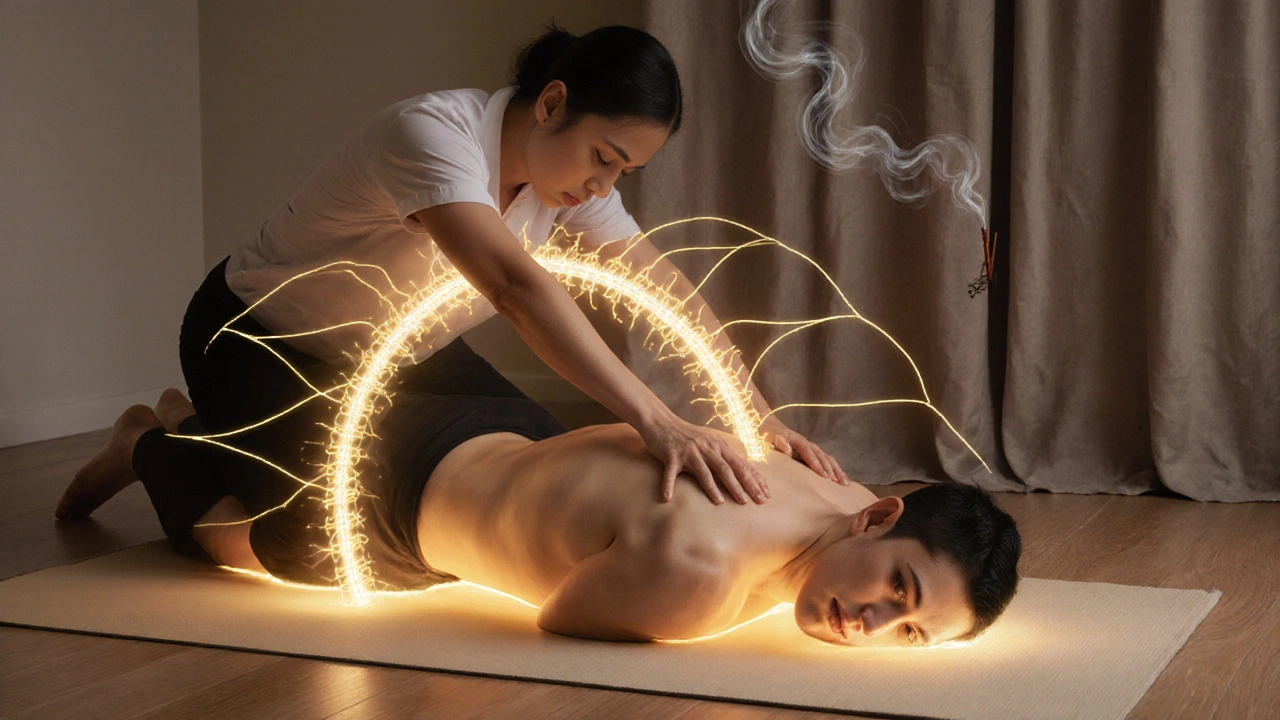
What Happens During a Session
Here’s what to expect - step by step:
- You’ll be asked to wear loose, comfortable clothing. Bring a change if needed.
- You’ll lie on a thick mat on the floor. No table. No sheets - just your clothes.
- The therapist will start at your feet, working up slowly. No sudden moves.
- You’ll be guided into stretches - some gentle, some surprising. Don’t resist. Let your body go.
- They’ll use their thumbs, palms, elbows, and sometimes even their feet to apply pressure along your energy lines.
- The whole thing lasts 60 to 90 minutes. No talking unless you want to.
- Afterward, you’ll be offered herbal tea. Sip slowly. Don’t rush.
It’s not supposed to hurt - but it might feel intense. If something feels wrong, speak up. A good therapist will adjust on the spot.
Pricing: What You’ll Pay in London
Prices vary based on location, therapist experience, and session length:
- 60-minute session: £50-£70
- 90-minute session: £75-£110
- 120-minute session: £120-£160 (rare, but worth it if you’re deeply tense)
Some places offer packages: buy 5 sessions, get the 6th free. That’s a smart move if you’re serious about long-term relief. Avoid places charging over £150 for 90 minutes - unless they’re in a luxury hotel with a famous name. You’re paying for the technique, not the chandeliers.
Booking Tips
Don’t just book the first Google result. Here’s how to avoid the fakes:
- Check the therapist’s profile. Do they mention training in Thailand? Wat Pho? Chiang Mai? That’s a good sign.
- Read reviews for details. “Felt like I was being pulled into yoga poses” - that’s authentic. “Felt amazing” - too vague.
- Call ahead. Ask: “Do you use the traditional Thai method with sen lines?” If they hesitate or say “yes” without explaining, walk away.
- Book early. The best therapists fill up weeks in advance.
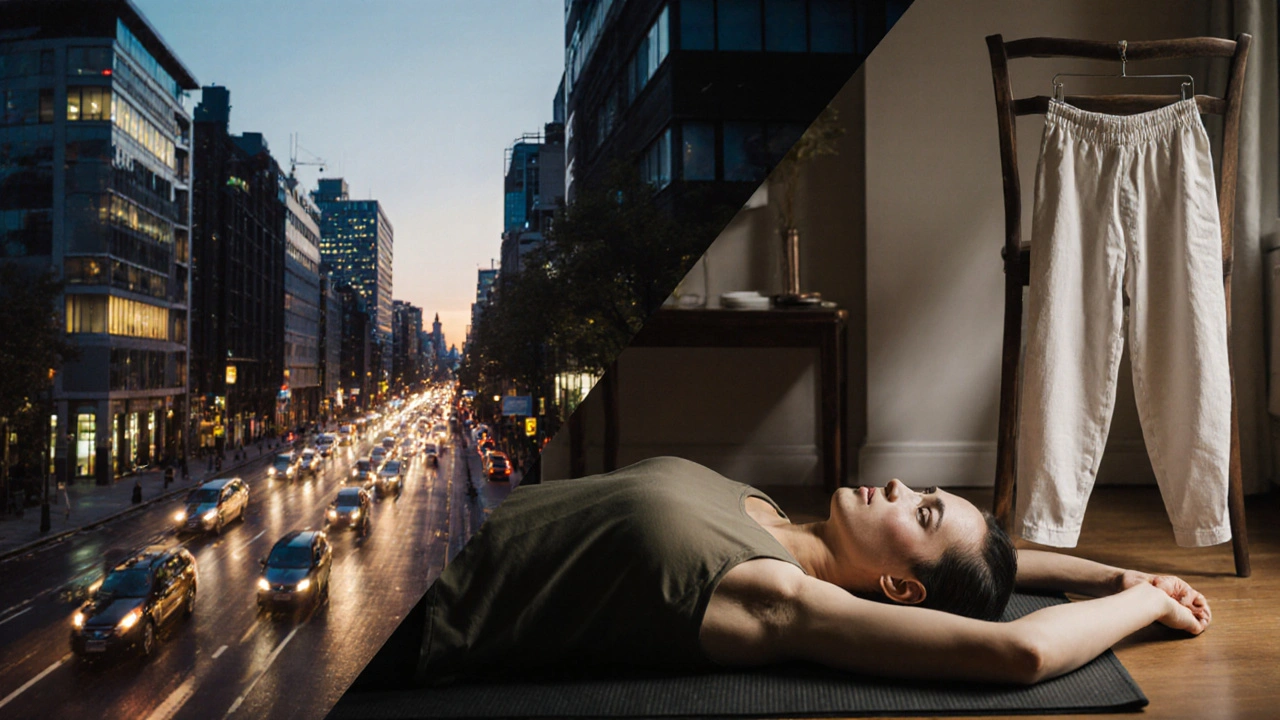
Thai Massage vs. Swedish Massage in London
| Feature | Thai Massage | Swedish Massage |
|---|---|---|
| Attire | Fully clothed (loose cotton) | Nude under sheets |
| Technique | Stretching, compression, acupressure | Long strokes, kneading, light pressure |
| Surface | Floor mat | Massage table |
| Oil/lotions | None | Yes |
| Energy focus | Sen lines (energy channels) | None |
| Best for | Chronic stiffness, mobility, deep relaxation | Stress relief, light tension, surface relaxation |
| Duration | 60-120 minutes | 60-90 minutes |
If you want to feel like you’ve been gently pulled apart and put back together - go Thai. If you just want to melt into a warm towel, go Swedish.
Safety Tips
Thai massage is safe for most people - but not everyone.
- Avoid it if you have recent fractures, severe osteoporosis, or are in your first trimester of pregnancy.
- Let your therapist know if you have nerve damage, herniated discs, or recent surgery.
- Don’t eat a heavy meal 2 hours before. You’ll feel sluggish.
- Hydrate well after. Your body is releasing toxins - water helps flush them out.
- Wait at least 24 hours before intense exercise. Your muscles need time to adjust.
Frequently Asked Questions
Is Thai massage painful?
It shouldn’t be painful, but it can feel intense. Think of it like a deep stretch in yoga - the kind that makes you gasp but then feel amazing. A good therapist will check in with you. If it hurts too much, say so. You’re in control.
Do I need to be flexible for Thai massage?
No. Thai massage is designed for people who aren’t flexible. The therapist moves you gently into positions you can’t reach on your own. You don’t have to do anything - just relax and let them guide you.
How often should I get Thai massage?
Once a month is great for maintenance. If you’re dealing with chronic pain, stress, or sitting at a desk all day, once every two weeks helps. Think of it like brushing your teeth - regular care prevents bigger problems.
Can I get Thai massage if I’m not from Thailand?
Absolutely. Thai massage isn’t cultural - it’s physical. People from all over the world, including Londoners who’ve never left the UK, get relief from it. The technique works on the body, not your passport.
What’s the difference between Thai massage and Shiatsu?
Both use pressure points, but Thai massage includes full-body stretching and uses the therapist’s entire body - elbows, knees, feet - to apply pressure. Shiatsu is more focused on finger pressure along meridians and doesn’t involve movement or stretching. Thai massage is more dynamic.
Ready to Reset?
Thai massage in London isn’t a luxury. It’s a tool - one that’s been used for centuries to help people move better, breathe deeper, and live lighter. You don’t need to be stressed out or in pain to try it. You just need to be ready to let go.
Book your first session this week. Not next week. Not when you have “more time.” Right now. Your body’s already asking for it.
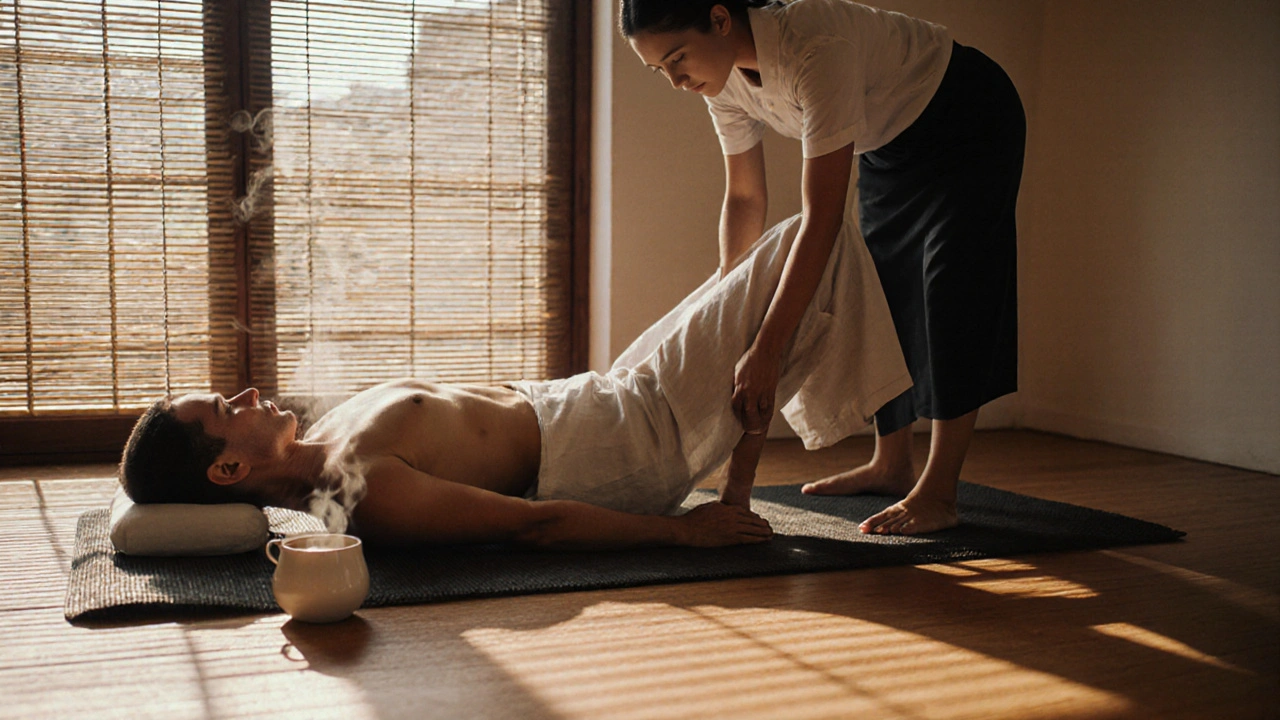
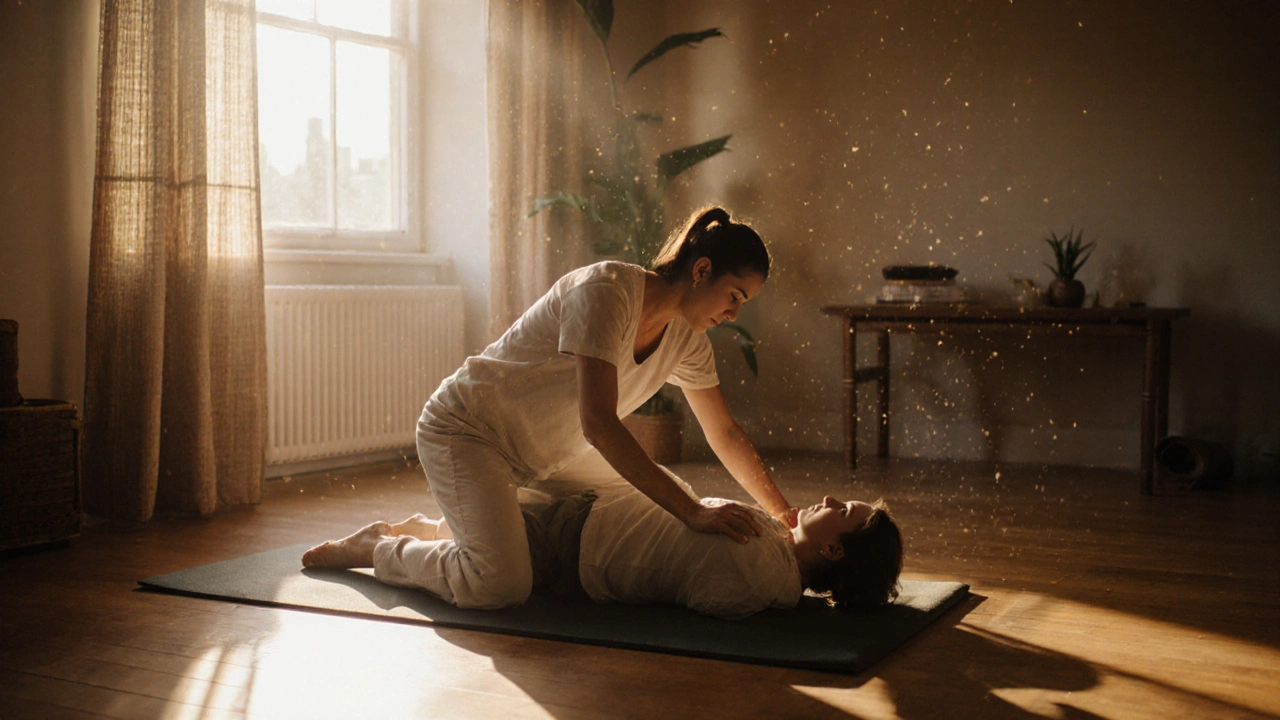
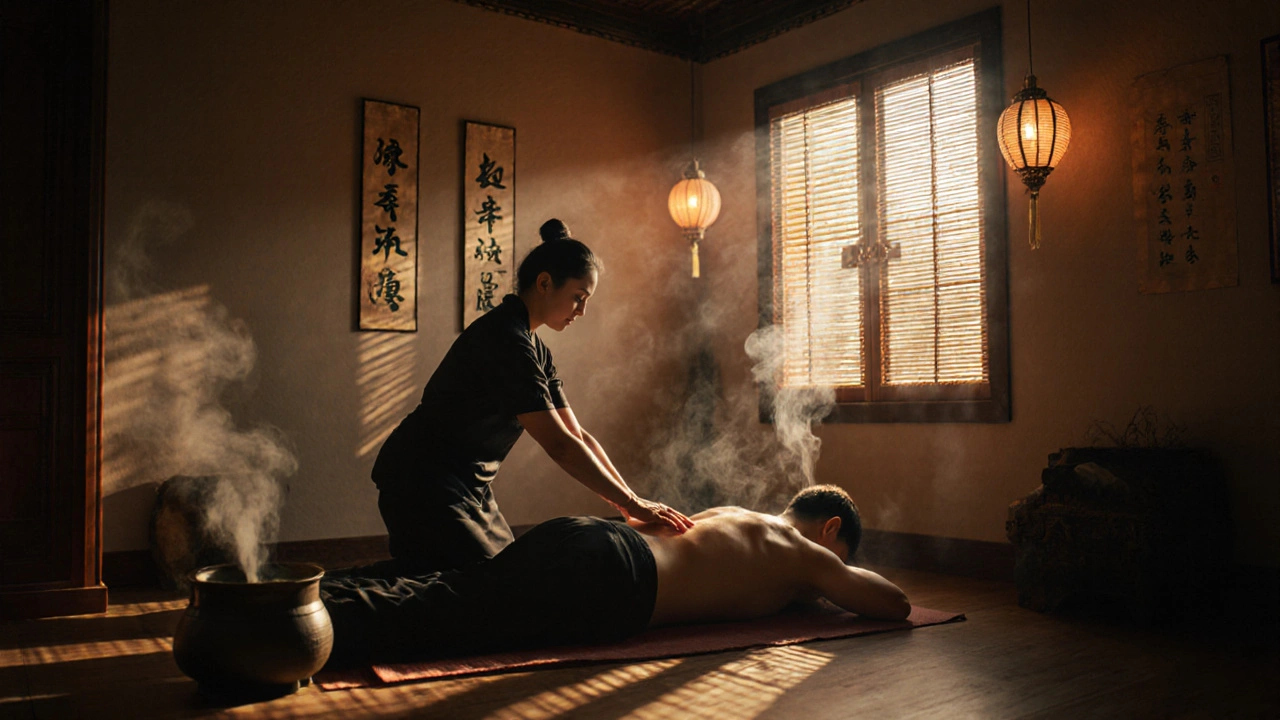
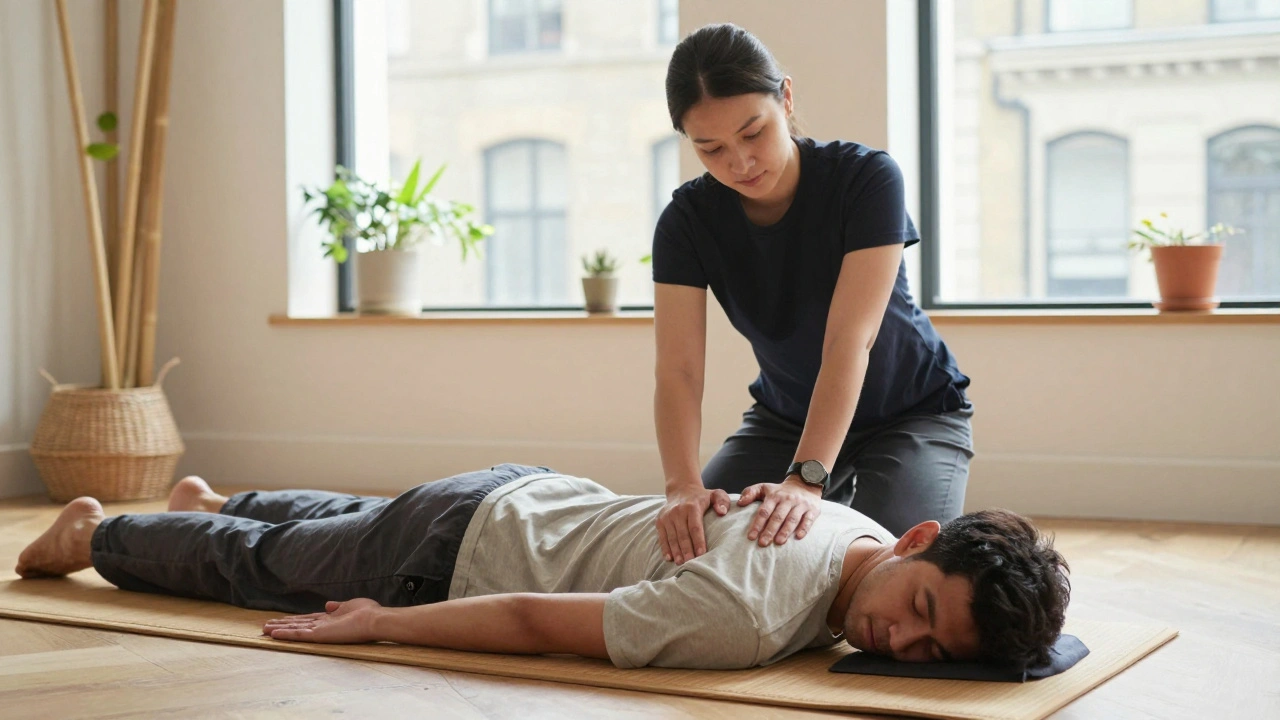

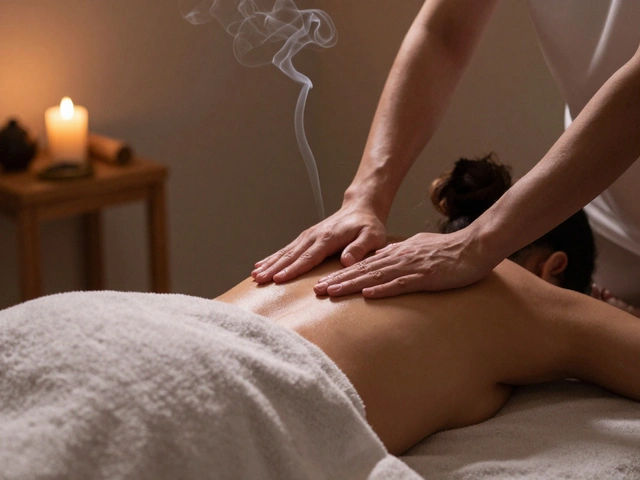
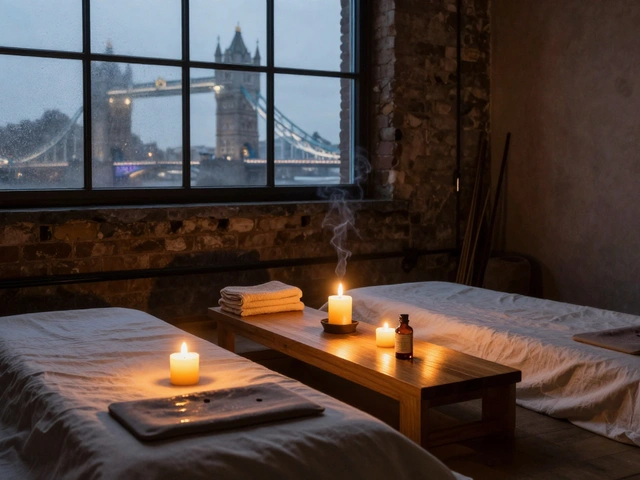
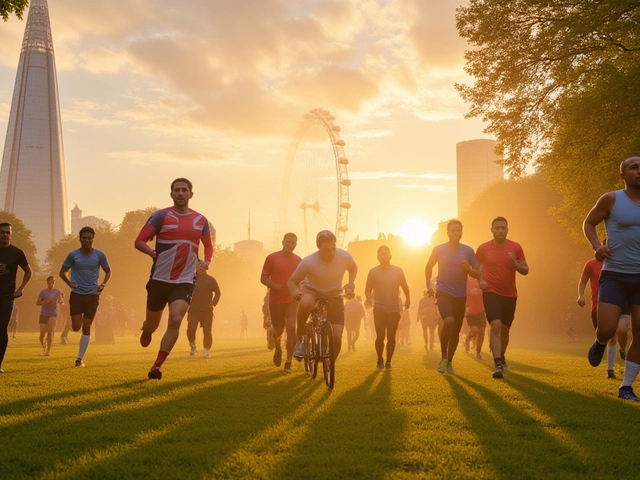

Sarah Kavanagh
November 29, 2025 AT 08:58It's funny how something so simple-being moved like a ragdoll by someone who knows what they're doing-can feel like a spiritual reset. I didn't believe it until I tried it. Now I don't go more than six weeks without. My spine remembers the stretch even when my mind forgets to breathe.
Angie Angela
November 30, 2025 AT 20:51Okay but can we talk about how every single article ever writes 'you don't need to be flexible' like it's some revolutionary idea? You're literally being moved by a stranger. Of course you don't need to be flexible. That's the whole point. Also 'sen lines'? Sounds like a yoga brand.
fred mulder
December 1, 2025 AT 21:58Just wanted to say thank you for writing this. I’ve been skeptical about massage therapies for years-thought they were all hype. But after my first session at that little studio in Islington, I cried. Not because it hurt, but because I hadn’t realized how much tension I was holding onto. It wasn’t just physical. It felt like my nervous system finally got permission to relax. If you’re on the fence, just go. No regrets.
Alice Decogateaux
December 2, 2025 AT 09:24THEY’RE USING YOUR FEET??!! That’s not massage-that’s a cult initiation. I’ve seen documentaries. They train these people in Thailand to hypnotize you with rhythmic pressure and herbal tea while you’re vulnerable on the floor. Then they upsell you $200 crystals. And don’t get me started on 'sen lines'-that’s just rebranded acupuncture with yoga poses. Wake up people. This isn’t healing-it’s performance art for rich tourists.
Melanie Carp
December 3, 2025 AT 17:30YES. This. I got mine in Camden and now I bring my whole family. My 70-year-old mom says it’s the first time in 20 years she’s slept through the night. 😊 I even convinced my brother who thinks ‘massage’ is just a fancy word for 'rubbing'. He went last week and came back saying, 'Okay, I get it now.' We’re all believers. Book it. You won’t regret it.
Maureen Addison-Smith
December 4, 2025 AT 23:20While I appreciate the thoroughness of this piece, I must respectfully challenge the conflation of therapeutic efficacy with cultural authenticity. The notion that 'true' Thai massage must originate from Bangkok or Chiang Mai risks essentializing an ancient practice into a commodified trope. Many practitioners in London have undergone rigorous, multi-year training under certified lineages-some even outside Thailand. The essence lies not in geography, but in adherence to the biomechanical and energetic principles. Furthermore, the emphasis on 'Thai-owned signs' may inadvertently marginalize diasporic practitioners who have inherited the tradition with equal fidelity. A more nuanced approach would honor both lineage and lived expertise.
Andre Möller
December 6, 2025 AT 13:34I’ve had Thai massage in Bangkok, Chiang Mai, and now here in London. The vibe’s different, but the magic? Same. The best ones don’t talk much. Just move you. You leave feeling like your body forgot it was a machine. And yeah, the foot thing? Wild the first time. But after? You just… let it happen. No drama. Just quiet relief. If you’re tired of feeling like you’re walking around with bricks in your shoulders, try it. No hype needed.
Eddie Moss
December 8, 2025 AT 05:01lol u guys are so gullible. Thai massage? More like Thai scam. They use your feet? Bro that's just a gimmick. I got one once and the guy smelled like curry and sweat. And 'sen lines'? That's just pressure points with a fancy name. You know what fixes back pain? A chiropractor. Or a gym. Or not sitting on your ass all day. Stop paying $100 to be stretched like a pretzel by someone who probably learned it from a YouTube video.